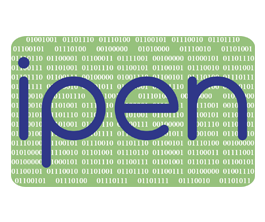IPEN 2020 Panel on Web Tracking
Exposing and limiting web tracking - technology, design, litigation and enforcement
When:
Tuesday, 21 January 2020, from 10:00 – 12:00
Where:
European Data Protection Supervisor (EDPS)
Giovanni Buttarelli Room (Ground Floor)
Rue Montoyer 30
1000 Brussels, Belgium
IPEN events bring together privacy experts and engineers from public authorities, industry, academia and civil society to discuss relevant challenges and developments for the technological implementation of data protection and privacy.
The first IPEN event of 2020 will be focussing on web tracking, which over the years has become more pervasive and problematic. Web tracking is an issue tightly linked to technology, and new technologies are emerging to help identify and fight unlawful web tracking.
This IPEN event will showcase the efforts by Data Protection Authorities (DPAs) to increasingly enforce the relevant provisions of the General Data Protection Regulation (GDPR) and the ePrivacy Directive, and by consumer protection organisations to use legal means to curb web tracking. A software provider is trying to offer an alternative to the prevailing financing model for web companies. On an internet where websites have become increasingly complex and dependant on third party components, website owners appreciate having the tools to assess the web tracking activities on their websites. Equally, website visitors would also be empowered if they could do some test on the visited websites to check for web trackers. As part of the answer, the event will showcase the Website Evidence Collector, made publicly available by the European Data Protection Supervisor.
DRAFT AGENDA:
10:00-10:30 Registration (coffee and tea will be served)
10:30-10:40 Opening statement by Wojciech WIEWIOROWSKI, European Data Protection Supervisor
10:40-11:50 Panel discussion with
- Isabelle BUSCKE, German consumer organisation VZBV
- Jelle MAKKINGA, Senior Inspector, Dutch DPA Autoriteit Persoonsgegevens
- Xabier LAREO, Technology & Security Officer, EDPS
- Panos PAPADOPOULOS, Brave Software
- Achim KLABUNDE, Adviser to the Supervisor, EDPS (moderator)
11:50-12:00 Conclusion by Thomas ZERDICK, Head of Unit “Information Technology Policy”, EDPS
The panel will be part of the “Brussels Data Protection Week” and take place the day before the conference "Computers, Privacy and Data Protection" which will be held 22-24 January 2020.
Registration details
The workshop is free of charge. Participants will carry their own expenses.
To register for the workshop, please send an email to ipen@edps.europa.eu stating your full name, affiliation and whether you consent to:
- sharing your contact details among the participants of the workshop for networking purposes;
- using your contact details to invite you to future similar events;
- taking photos and record videos of you during the workshop for publishing them on our intranet, internet site and other EDPS social channels (Twitter, LinkedIn and YouTube).
Upon receipt of a registration request, we may ask for additional details required to access the EDPS building.
For questions please read the Data Protection Notice or contact ipen@edps.europa.eu.
For more information about the Internet Privacy Engineering Network, please check the IPEN homepage, the IPEN Wiki and/or consider joining the IPEN mailing list.
